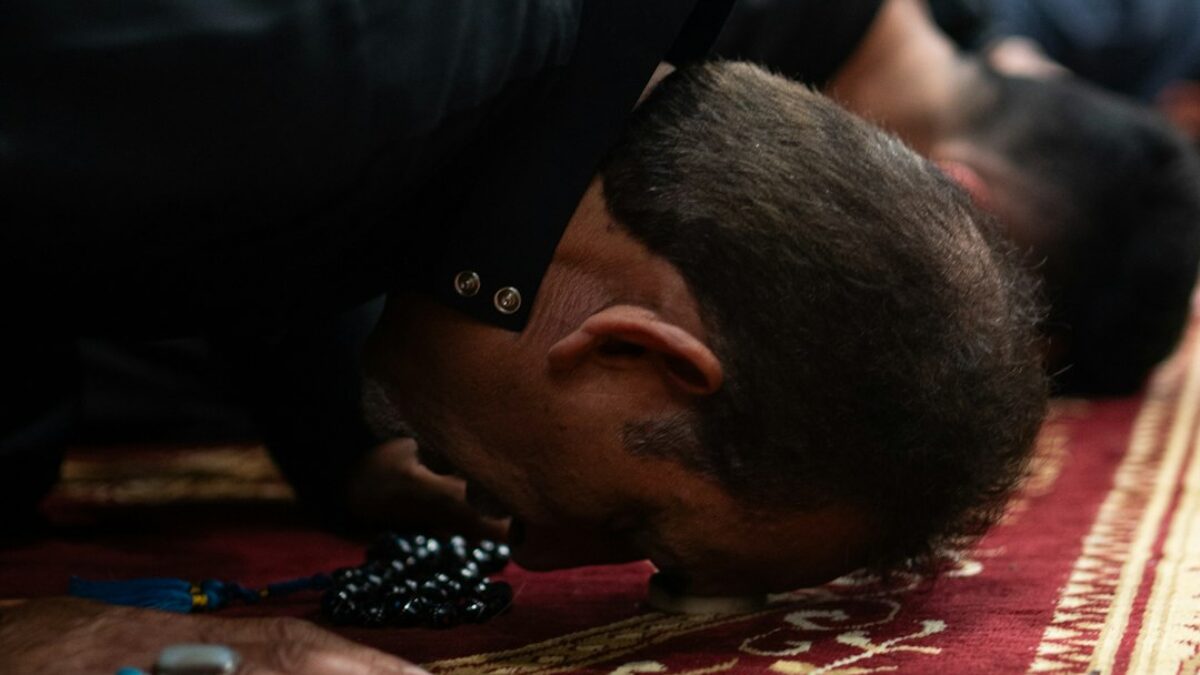Learn Quran: Assalamu alaikum wa rahmatullahi wa barakatuhu. Welcome to this in-depth guide on Islamic Duas, a cornerstone of Muslim spirituality. Dua, meaning supplication or prayer, is a profound act of worship that connects believers directly with Allah (SWT). Whether you’re new to Islam or seeking to deepen your understanding, this article offers a comprehensive roadmap to learning Duas from scratch. We’ll explore their significance, types, specific examples for various occasions, and practical ways to learn them, including online courses. Optimized for search engines with keywords like “Islamic Duas,” “learn Duas online,” and “Quranic supplications,” this guide also provides insights into fees, reviews, and resources to ensure a trustworthy and engaging experience.

The Significance of Dua in Islam
Dua is more than a request; it’s a heartfelt conversation with Allah, reflecting a Muslim’s dependence on His mercy and wisdom. The Prophet Muhammad (peace be upon him) said, “Dua is the essence of worship” (Jami at-Tirmidhi). This Hadith underscores Dua’s role as a core act of devotion, equal to other forms of worship like Salah or fasting. Allah encourages supplication in the Quran: “Call upon Me; I will respond to you” (Quran 40:60). This divine promise assures believers that their prayers are heard, fostering hope and resilience.
Dua offers numerous spiritual and emotional benefits:
- Strengthens Faith: Regular supplication deepens trust in Allah’s plan.
- Provides Comfort: Duas for anxiety or sadness bring peace to the heart.
- Seeks Forgiveness: Asking for pardon purifies the soul.
- Expresses Gratitude: Duas of thanks reinforce humility and contentment.
For beginners, understanding Dua’s significance is the first step to embracing its practice. It’s a flexible act, unlike the structured Salah, allowing supplications in any language, time, or place, making it accessible to all.
Read more:
Types of Dua
Islamic tradition categorizes Duas into two primary types, each serving a unique purpose:
- Du’a of Asking (Du’ā al-mas’alah): This involves requesting specific needs, such as health, success, or protection. For example, “O Allah! Grant me good in this world and good in the next life!” is a common Dua of asking, reflecting reliance on Allah for worldly and spiritual needs.
- Du’a of Worship (Du’ā al-’ibadah): This encompasses acts of worship like Salah, fasting, and Quran recitation, where the act itself is a form of supplication. For instance, the five daily prayers include Duas like Surah Al-Fatihah, which seeks guidance.
Additionally, Duas can be specific to occasions, such as morning prayers or travel supplications, which we’ll explore next. Understanding these types helps beginners appreciate the breadth of Dua in Islamic practice.
Specific Duas for Different Occasions
Islam provides a rich collection of Duas for every aspect of life, ensuring believers can turn to Allah in all circumstances. Below is a detailed list of Duas, their Arabic text, transliterations, translations, and significance, drawn from authentic sources like the Quran and Hadith.
| Occasion | Arabic Text | Transliteration | Translation | Significance |
|---|---|---|---|---|
| Morning | اللهم بك أصبحنا وبك أمسينا وبك نحيا وبك نموت وإليك النشور | Allahumma bika asbahna wa bika amsayna, wa bika nahya wa bika namut, wa ilayka al-nushur | O Allah, with Your name we have entered the morning, and with Your name we have entered the evening, with You we live and die, and to You is our resurrection. | Recited at dawn to seek Allah’s protection and blessings for the day. |
| Evening | اللهم إني أسألك العفو والعافية في الدنيا والآخرة | Allahumma inni asaluka al-afwa wal-afiyata fid-dunya wal-akhirah | O Allah, I ask You for pardon and well-being in this world and the Hereafter. | Recited at dusk to seek forgiveness and safety for the night. |
| Before Eating | بسم الله وعلى بركة الله | Bismillah, wa ala barakatillah | In the name of Allah, and with Allah’s blessing. | Ensures blessings on the food and gratitude for Allah’s provision. |
| After Eating | الحمد لله الذي أطعمنا وسقانا وجعلنا مسلمين | Alhamdu lillahi alladhi at’amana wa saqana wa ja’alana muslimin | Praise be to Allah who fed us and gave us drink and made us Muslims. | Expresses gratitude for sustenance and faith. |
| Entering House | بسم الله ولجنا وبسم الله خرجنا وعلى الله ربنا توكلنا | Bismillah walajna, wa bismillah kharajna, wa ala Allahi rabbina tawakkalt | In the name of Allah we enter, and in the name of Allah we leave, and upon Allah, our Lord, we place our trust. | Seeks protection and blessings for the home. |
| Traveling | سبحان الذي سخر لنا هذا وما كنا له مقرنين وإنا إلى ربنا لمنقلبون | Subhanalladhi sakhkhara lana hadha wa ma kunna lahu muqrineen. Wa inna ila rabbina lamunqalibun | Glory be to Him who has subjected this to us, and we were not capable of it. And indeed to our Lord we will surely return. | Ensures safety and guidance during journeys. |
| Seeking Forgiveness | أستغفر الله العظيم الذي لا إله إلا هو الحي القيوم وأتوب إليه | Astaghfirullah al-adhim alladhi la ilaha illa huwa al-hayy al-qayyum wa atubu ilayhi | I seek forgiveness from Allah, the Mighty, beside whom there is no god, the Ever-Living, the Sustainer of existence, and I turn to Him in repentance. | Purifies the soul by seeking Allah’s mercy. |
| Protection | أعوذ بكلمات الله التامات من شر ما خلق | A’udhu bi kalimatillah it-tammati min sharri ma khalaq | I seek refuge in the perfect words of Allah from the evil of what He has created. | Shields from harm and evil influences. |
| Anxiety Relief | اللهم إني أعوذ بك من الهم والحزن والعجز والكسل | Allahumma inni a’udhu bika min al-hammi wal-huzn, wal-’ajzi wal-kasal | O Allah, I take refuge in You from anxiety and sorrow, weakness and laziness. | Calms the heart during distress (Islamic Relief). |
| Gratitude | اللهم إن شكرك نعمة، تستحق الشكر | Allahumma inna shukraka ni’ma, tastahiqqu ash-shukr | O Allah, thanking You is a blessing, You deserve all thankfulness. | Reinforces humility and appreciation (Islamic Relief). |
These Duas, sourced from reliable platforms like IslamicFinder and Islamic Relief, cover daily routines and special circumstances. Beginners can start with these, gradually expanding their repertoire as they grow in faith.
Understanding Arabic and Tafsir for Duas
For those learning Duas from scratch, understanding Arabic and Tafsir (Quranic exegesis) enhances their spiritual experience. Many Duas, especially Rabbana Duas from the Quran, are in Arabic, and knowing their meanings deepens their impact.
- Arabic Basics: Learning the Arabic alphabet and basic pronunciation is a great start. Resources like Madina Institute offer online Arabic courses tailored for Quranic understanding. For example, pronouncing “Rabbana atina fid-dunya hasanah” correctly ensures the Dua’s authenticity.
- Tafsir Insights: Tafsir explains the context and meaning of Quranic verses, including Duas. For instance, the Dua “Rabbana atina fid-dunya hasanah wa fil akhirati hasanah” (Quran 2:201) seeks goodness in both worlds. Studying Tafsir, available through books like Tafsir Ibn Kathir or online platforms, helps beginners grasp the Dua’s intent.
Combining Arabic and Tafsir studies with Dua practice enriches spiritual growth, making supplications more meaningful.
How to Learn Islamic Duas
Learning Duas is accessible for all levels, with various resources catering to beginners and advanced learners. Here are practical methods:
- Books:
- “Hisn al-Muslim” by Imam an-Nawawi is a compact collection of authentic Duas, available on Amazon.
- “The Power of Du’a” by Aliyah Umm Raiyaan offers insights into Dua’s spiritual impact.
- Websites:
- IslamicFinder provides Duas with Arabic, transliteration, and translations.
- Duas.org offers a vast collection, including Duas for specific events like Hajj.
- MyIslam focuses on Quranic Rabbana Duas.
- Mobile Apps:
- Apps like Muslim Pro and Quran Majeed include Dua sections with audio for pronunciation.
- Memorization Tips:
- Repetition: Recite Duas during daily routines, like before meals or at bedtime.
- Understanding: Learn the meanings to make Duas heartfelt.
- Audio Aids: Listen to recitations on YouTube or apps to master pronunciation.
- Writing: Write Duas in a journal to reinforce memory.
- Community Learning:
- Join local mosque classes or online study circles to learn with others, fostering motivation.
Online Courses for Learning Islamic Duas
Online courses offer structured learning for those seeking a guided approach. Below is an overview of platforms and considerations:
| Platform | Course Details | Fees | Reviews |
|---|---|---|---|
| Udemy | “A MUST COURSE For Every Muslim” covers Duas, Salah, and Islamic basics. Self-paced with video lessons and quizzes (Udemy). | Varies, often $10-$50 with discounts. | Rated 4.6/5 based on 51 reviews for similar courses. |
| Madina Institute | Online Islamic and Arabic Studies include Duas within foundational programs, ideal for busy learners (Madina Institute). | Flexible pricing, scholarships available. | Limited reviews; check website for testimonials. |
| Firdaws Academy | Islamic Studies for Kids and Adults cover Duas as acts of worship. One-on-one classes (Firdaws Academy). | Custom pricing, two free trial classes. | Positive feedback for personalized learning. |
| Al Balagh Academy | Offers interactive Islamic courses with Dua components, including live Q&A (Al Balagh). | Varies, contact for details. | High engagement noted in student forums. |
Choosing a Course:
- Instructor Expertise: Ensure teachers are qualified scholars, like those at Madina Institute.
- Curriculum: Look for courses covering Dua meanings, pronunciation, and occasions.
- Reviews: Check platforms like Udemy for student feedback (e.g., 4.6/5 for Islamic courses).
- Fees: Compare costs; Udemy is budget-friendly, while institutes may offer scholarships.
- Certification: Courses like Al Balagh provide certificates, useful for personal growth.
For the latest fees and reviews, visit the respective websites, as pricing and feedback may change. These courses cater to beginners, offering video content, interactive sessions, and community support.
Benefits of Online Learning
Online courses provide flexibility and accessibility:
- Convenience: Learn from home at your own pace.
- Diverse Resources: Access videos, PDFs, and forums.
- Global Community: Connect with learners worldwide.
- Expert Guidance: Benefit from qualified instructors, ensuring authentic knowledge.
Practical Tips for Beginners
- Start Small: Begin with short Duas, like those for eating or entering the house.
- Set Goals: Aim to learn one Dua per week.
- Practice Daily: Incorporate Duas into routines for consistency.
- Seek Support: Join online forums or mosque groups for encouragement.
Conclusion
Islamic Duas are a gateway to spiritual fulfillment, offering a direct connection with Allah (SWT). From morning supplications to prayers for forgiveness, Duas enrich daily life and strengthen faith. Beginners can learn Duas through books, websites, and online courses, with platforms like Udemy and Madina Institute providing accessible options. By understanding Arabic and Tafsir, learners can deepen their appreciation of these supplications. This guide, crafted with SEO best practices, aims to empower you to embrace Duas with confidence. May Allah accept your supplications and guide you on the straight path. Ameen.














Post Comment